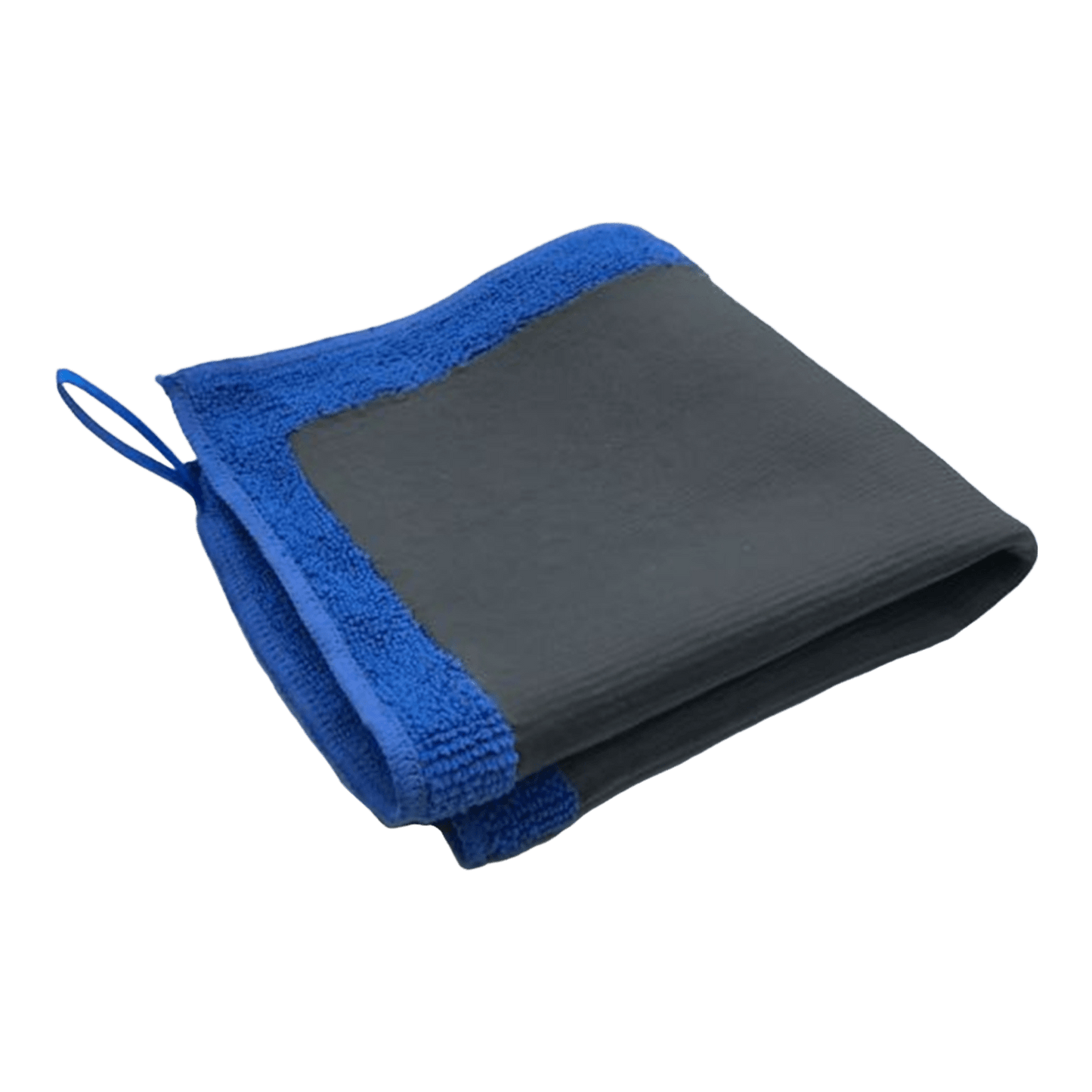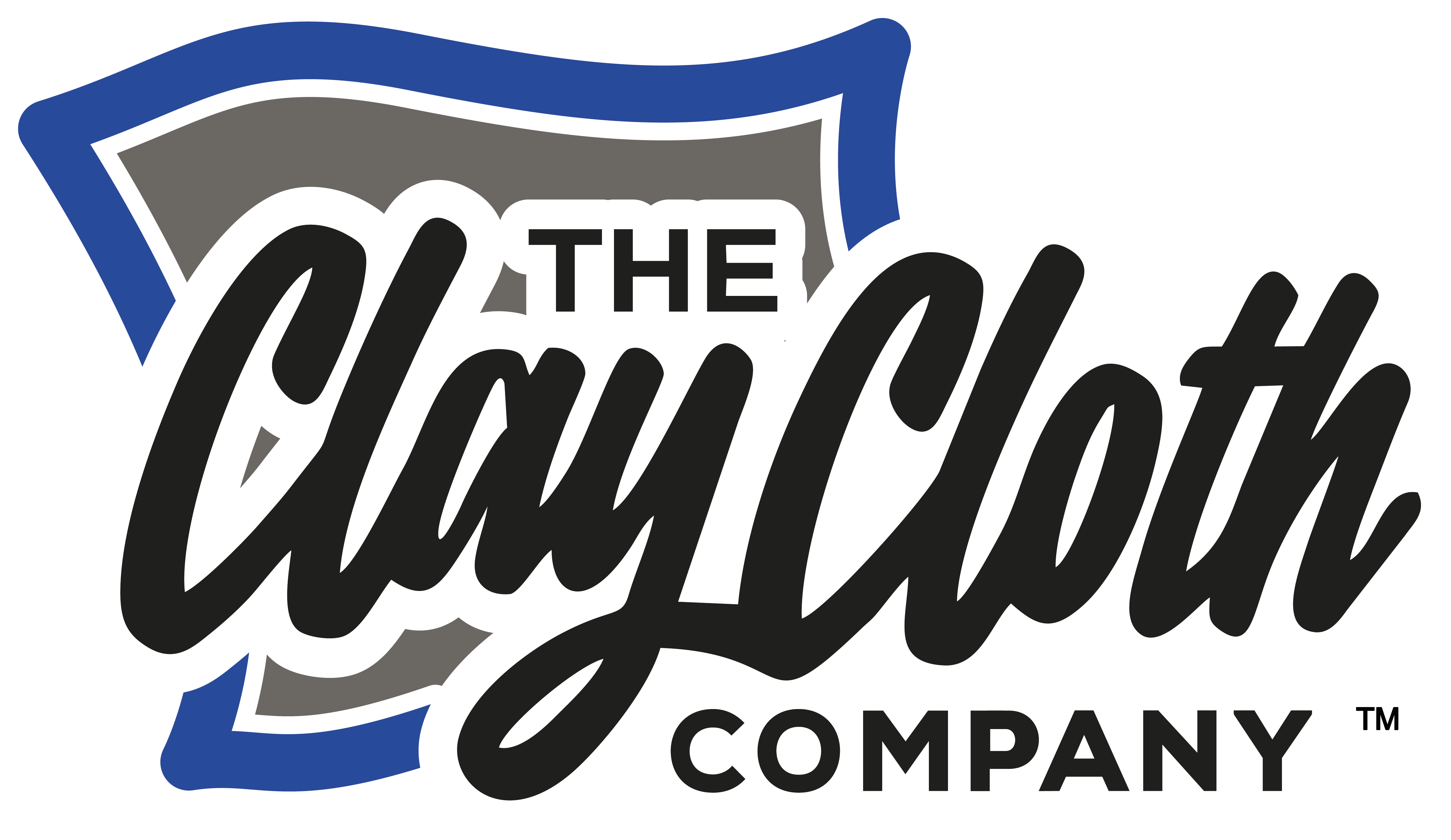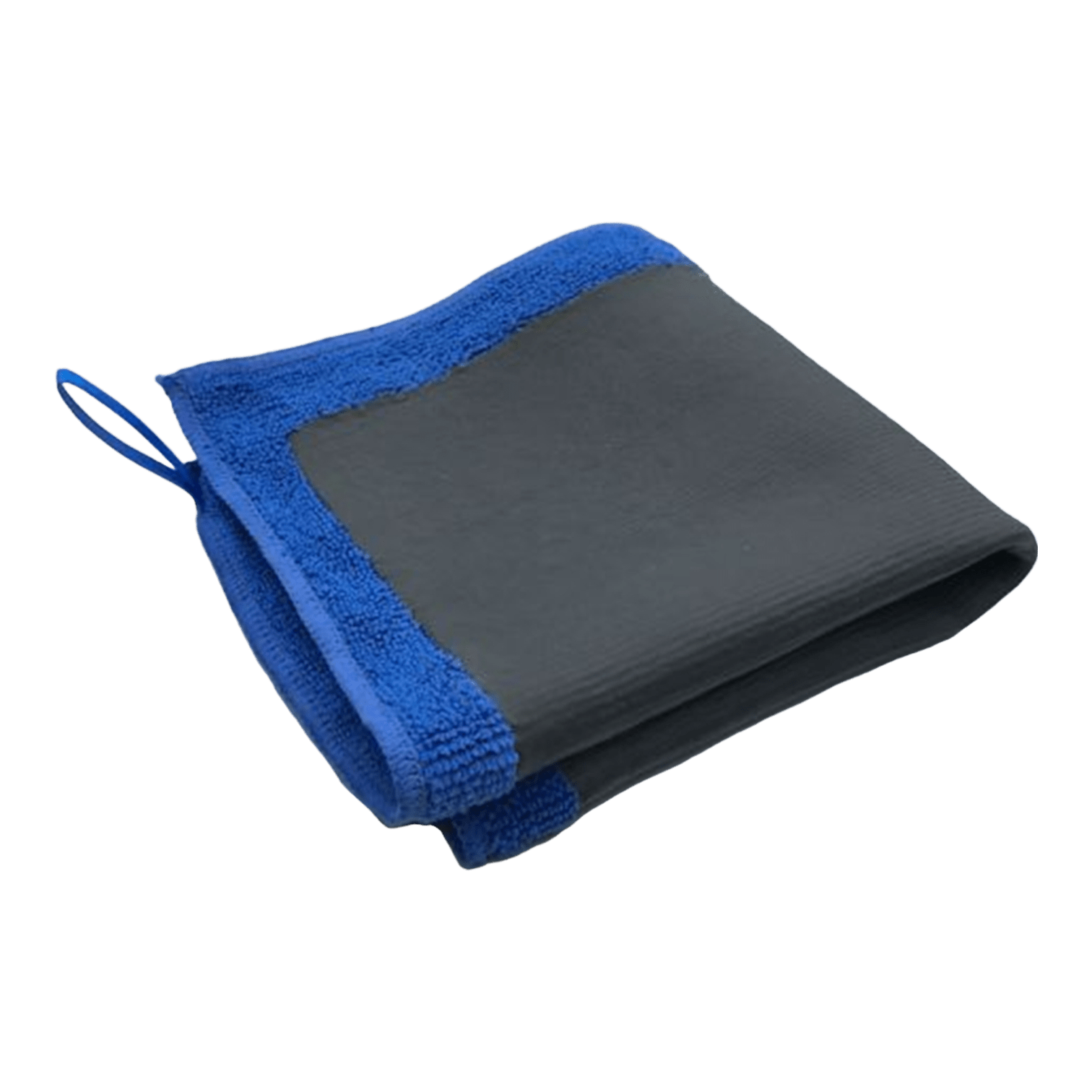The Clay Cloth Company
The Clay Cloth
The Clay Cloth
Free delivery with orders over £50
Couldn't load pickup availability
The Clay Cloth
The Clay Cloth Solar has a thick layer of polymer clay compound bonded to a microfibre which quickly and easily removes surface contaminants and a high percentage of the embedded contaminants, allowing products to bond to the paintwork more effectively and provide a better finish. Embedded contaminants such as such as brake dust, tree sap, tar, iron fallout, paint overspray and more! When these bond themselves to your vehicles paintwork, over time they leave your paintwork feeling rough to the touch and mask your paintwork of clarity and shine; they can also effect how your car wax or paint sealant work when applied as well as providing potential long term damage.
The Clay Cloth does not require 'warming up' like Clay Bars to make it soft and pliable and if you drop it, then it can be cleaned by simply rinsing it thoroughly in water, unlike a Clay Bar resulting in it being written off!
Perhaps the biggest advantage is that the Clay Cloth lasts up to 5 times longer than the traditional Clay Bar, easy to handle and it saves a significant amount of time and is much more cost effective without compromise on performance.
A very popular product which has high durability of 60-80 vehicles dependant on contamination severity.
Is there any downside to the Clay cloth Solar? Well like all clay products, a generous amount of lubrication is required to prevent marring. These can be dedicated clay lubricants, some water based detailing sprays or simply fresh water with some car shampoo in it. Any marring can be removed with a polish, but with some practice, marring soon becomes a moot point!
Why is the Clay Cloth cloth not graded? The pattern in which the polymer clay compound is applied allows for a reduced risk of marring (see 'New Features' below) and this clever design means that within reason, it can tackle most things on the automotive paint surface. Grading is often an unnecessary marketing ploy!
Polythene Bag Test. You can check how smooth your automotive paint surface is by simply running your hand over the top of it (ensure you are jewellery free) but a neat trick to amplify this is to place your hand into a polythene bag (sandwich bag) and gently rub it over the surface. If there is contamination, then this technique will highlight it far easier than your hand will.
New features include:
- New Polymer Clay Compound – Endures heat from sunlight much better preventing compound going sticky.
- Coverage – The Polymer Clay Compound is slightly thicker and of higher quality.
- Membrane Furrows - These ridges in the polymer clay compound are open pored preventing contaminants from getting trapped
- Microfibre – New and improved closed-loop weave to provide more 'bite'
- Usability – Superb feedback experience during the claying process, eliminating over usage in achieving the required result and thus saving more time.
- Size - Approx 29cm x 29cm
Instructions (See Notes below also)
1. Thoroughly wash the vehicle removing all loose surface contamination.
2. Pre soak the Clay Cloth in warm water and car shampoo prior to use. Wet the cars surface before attempting to use the Clay Cloth using the microfiber side.
3. Without applying pressure, pass the Clay Cloth over the wet surface until the surface feels smooth. The Clay Cloth should be rinsed regularly to reduce the risk of any contamination marring the paintwork.
4. Thoroughly rinse the surface and use a fresh microfibre cloth to dry the area. The surface should be smooth to touch.
5. You now have a clean canvas, perfect for the application of wax or car polish.
6. The Clay Cloth Solar can be cleaned and reused by simply rinsing with clean water and leaving to air dry. You can utilise the sewn in loop to hang. DO NOT MACHINE WASH as this will damage the polymer rubber clay compound.
7. DO NOT WRING OUT as this will weaken the compound.
Notes:
For First Time Use - It is advisable to break your cloth in on its first outing. This can be done on glass (suggested rear window). This important step levels the membrane furrows slightly and reduces the risk of marring on first use.
1. Do not use in direct sunlight or on surfaces over 145◦c / 62◦c
2. Do not leave to dry with the advanced polymer rubber layer in contact with itself
3. The Clay Cloth is not solvent resistant
4. The Clay Cloth Company take no responsibility for any damage caused by the incorrect use of our products.


